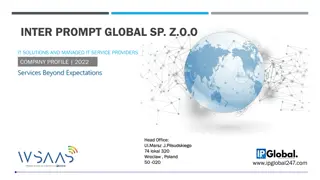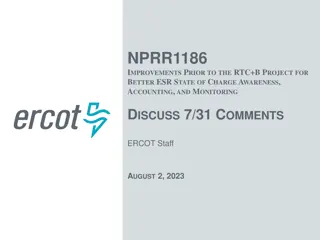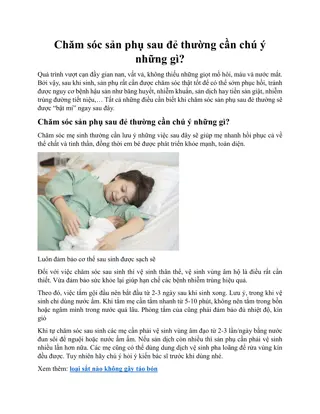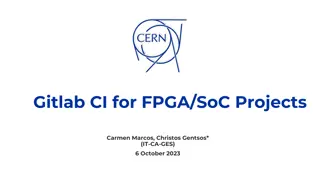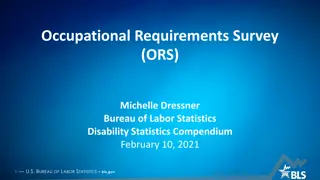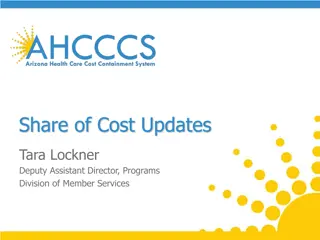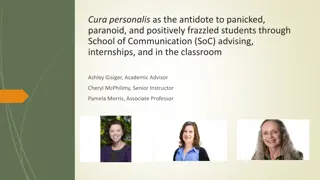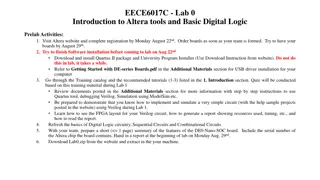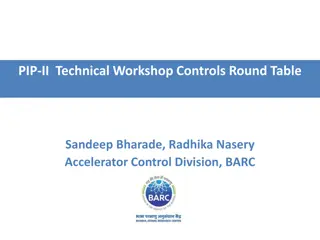
Enhancing Mental Health Support for Children and Families in Communities
Discover the importance of a system of care offering comprehensive services and supports for children and families facing mental health challenges. Learn about family-driven care, community-based services, and the impact of local collaboratives on improving outcomes. Explore the development of individualized action plans led by Child and Family Teams to keep children connected within their communities.
Download Presentation

Please find below an Image/Link to download the presentation.
The content on the website is provided AS IS for your information and personal use only. It may not be sold, licensed, or shared on other websites without obtaining consent from the author. If you encounter any issues during the download, it is possible that the publisher has removed the file from their server.
You are allowed to download the files provided on this website for personal or commercial use, subject to the condition that they are used lawfully. All files are the property of their respective owners.
The content on the website is provided AS IS for your information and personal use only. It may not be sold, licensed, or shared on other websites without obtaining consent from the author.
E N D
Presentation Transcript
A system of care is a spectrum of effective, community-based services and supports for very young children, school-aged children, adolescents, and emerging adults with or at risk for mental health and substance use challenges and their families. These supports are Coordinated Build on meaningful partnerships with families and address cultural and linguistic needs Help young people function better the community, and throughout life. partnerships with families and youth youth function better at home, in school, in Stroul, Goldman, Pires, and Manteuffel, 2012
Since the early 1990s, NC has been involved in multiple SAMSHA grants to develop local systems of care. In the last decade there have been 3 additional SAMSHA funded county projects in Mecklenburg, Alamance, and Durham Counties. Alamance (0-5 years) and Durham (transition to adulthood) have focused on specific ages.
Family driven and youth guided care Culturally and linguistically competent care Community-based services
Local Community Collaboratives Child and Family Teams Family and Youth Support, Education, and Voice Effective, evidence-informed services and supports
Develop local priorities based on local data and trends Develop strategies to fill service gaps Support family and youth voice in all levels of planning Support multi-agency review committees Develop community wide training plans Develop interagency agreements to improve system-wide collaboration
Local solutions to local concerns Better coordination and a full array of quality services and supports =better outcomes
A Child and Family Team develops a plan that supports the family and young person' s goals; striving to keep children and young people with complex needs in their home communities with meaningful connections to people and activities. The Child and Family Team leads to the development, implementation, and monitoring of a youth- centered/family focused action plan.
Child, young person, or emerging adult Parent/caregiver Family, friends, and supporters of the caregiver and child, young person, or emerging adult Professional staff connected with the family: social workers, court counselors, teachers, Guardian ad Litems, mental health providers The family has the final say on team membership though family members need information on why membership matters especially for agency staff whose involvement is mandated in the family s live (juvenile court, social services).
Build plans on the interests and strengths of the family and child or young person. Create safety and crisis plans Change plans when they are not working Celebrate successes
Family Partner is defined as a caregiver/parent of someone who has received services and therefore has first hand experience within the child and family system, or who has gone through the system themselves. (NC Families United)
For parents and caregivers: Family partners provide information, a listening ear, support in navigating services, guidance, and hope. For system partners: Family partners provide trainings, insight into the gaps and challenges of the system, and a connecting bridge to families.
Very young children, school-aged children, young people, and emerging adults with behavioral health challenges and their families deserve quick and easy access to effective, community treatments. One useful registry of evidenced informed prevention and intervention programs is the National Registry of Evidenced-Based Programs and Practices Nrepp.samhsa.gov
Triple P Strengthening Families Incredible Years Common Sense Parenting Nurturing Parenting
Multisystemic Therapy Seven Challenges Trauma Focused Cognitive Behavior Therapy Parent Child Interaction Therapy
Respite Flexible funds for individualized goals Supportive attitudes from caring adults
Return to Marlas Story
SAMHSA's Key Messages: Behavioral health is essential to health. Prevention works. Treatment is effective. People recover. Strategies: newspaper articles, art shows, trainings including Youth and Adult Mental Health First Aid
State Collaborative NC Families United NC Youth Move System of Care Coordinators in LME/MCOs State SOC Coordinator SOC Grants
The North Carolina State Collaborative for Children and Families, through a System of Care framework, provides a forum for collaboration, advocacy and action among families, public and private child and family serving agencies and community partners to improve outcomes for all children, youth and families.
North Carolina Families United is the Statewide Family Network and the state chapter of the National Federation of Families NC Families United is a family support and advocacy organization.
Link families to state and community partners for the purpose of improving the lives of children, youth, and families with emotional, behavioral, or mental health needs; Focus active attention on the unique strengths and needs of these children and their families by educating and advising policy.
Supports young people 14-26 years with support and skill building including leadership training and transition mentoring. Transition mentoring is mentoring with agency staff and a peer mentor. A transition plan is developed with and not for the youth and family and is strength- based and uses unique strengths, values, attitudes and preferences of the child, family/caregiver and the community.
Better outcomes for young people with behavioral health challenges and their families Note: Most outcome studies for SOC have high fidelity wraparound training/coaching and intensive care coordination ratios of 1:10.
Decreases in emotional and behavioral symptoms Increase in strengths including improved relationships with adults and peers Young people who have experienced trauma showed better functioning and reduced suicidal thoughts/attempts Improvements in school attendance and grades as well as reduction in suspensions and detentions.
Reduced recidivism for youth involved with juvenile justice Young people involved with social services showed increased stability in their living situation including fewer out of home placements as well reduced emotional and behavioral symptoms and improved school functioning
Improvements in family life including reduction in caregiver stress and increase in capacity to handle young person's challenges Increased problem solving Increased support from family and friends Increased ability to work and meet financial needs of the family
When caregivers receive support from family partners, they report improved: engagement in services skills in handling their child's behaviors satisfaction in services
Opportunities for improved accountability Expansion of home and community based services Development of inter-agency agreements to improve coordination Increase in use of evidenced-informed interventions Decrease in use of residential care
What if System of Care isn't working well in my community?
Reinvigorate your Community Collaborative. Enhance membership to include more family and youth voices. Include decision makers in agencies and communities. Gather information from families and young people who are using the systems. Use available data to understand challenges and strengths (DJJ Risk and Needs summary, DSS annual data, LME/MCO utilization and outcome data) of your community.
Explore the Reclaiming Futures framework of using data to understand how young people move through the system in order to improve protocols and try new strategies to get improved outcomes Use learnings from counties involved in Project Broadcast and REAP. Look to the learnings of Alamance and Durham System of Care grants to consider strategies for the very young and transition age youth
Potential for use of performance and outcome based contracts with providers. Use of Medicaid savings for additional supports for families. Increased use of evidenced informed practices. Move beyond only considering services for children covered by Medicaid to consideration of behavioral health needs of all children in a community.
System of Care is an adaptable framework which can be used to support other populations as communities enhance their skills in meeting the needs of young people with complex mental health challenges.
We can and must do better for our children with mental health challenges and their families. System of Care offers a path to better outcomes!
Questions? Local questions can be addressed to the System of Care Coordinator at your Local Management Entity/Managed Care Organization (LME/MCO) or the Director of your LME/MCO State questions can be directed to the Division of Mental Health/Developmental Disabilities/Substance Abuse Services at 919-715-2774 or NC Families United at 336-395-8828
Stroul,B., Goldman,S.,Pires, S.,& Manteuffel,B. (2012). Expanding system of care: Improving the lives of children, youth, and families. Washington,DC: Georgetown University Center for Child and Human Development, National Technical Assistance Center for Children's Mental Health http://gucchdtacenter.georgetown.edu/publications/SOC%20Results%20 5-7-12.pdf Stroul, B., Blau,G.,& Friedman,R. (2010). Updating the system of care concept and philosophy. Washington,DC: Georgetown University Center for Child and Human Development, National Assistance Center for Children's Mental Health www.isbe.state.il.us/learningsupports/pdfs/soc-brief-2010.pdf Websites for: North Carolina Families United at www.ncfamiliesunited.org North Carolina Collaborative for Children, Youth, and Families at www.nccollaborative.org
A project of the NC Division of Mental Health, Developmental Disabilities and Substance Abuse Services Behavioral Healthcare Resource Program School of Social Work University of North Carolina at Chapel Hill

